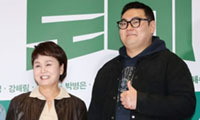Davutoglu’s and Erdogan’s cheap, crude anti-Semitic tropes, which Erdogan now relies on regularly to energize his base, are disgusting. For the great nation of Turkey, though, they’re part of a wider tragedy. It is really hard to say anymore that Erdogan’s Turkey is a democracy. Even worse, it is necessary to say that Turkey’s drift away from democracy is part of a much larger global trend today: Democracy is in recession.
As the Stanford University democracy expert Larry Diamond argues in an essay entitled “Facing Up to the Democratic Recession” in the latest issue of the Journal of Democracy: “Around 2006, the expansion of freedom and democracy in the world came to a prolonged halt. Since 2006, there has been no net expansion in the number of electoral democracies, which has oscillated between 114 and 119 (about 60 percent of the world’s states). ... The number of both electoral and liberal democracies began to decline after 2006 and then flattened out. Since 2006 the average level of freedom in the world has also deteriorated slightly.”
Since 2000, added Diamond, “I count 25 breakdowns of democracy in the world . not only through blatant military or executive coups, but also through subtle and incremental degradations of democratic rights and procedure. ... Some of these breakdowns occurred in quite low-quality democracies; yet in each case, a system of reasonably free and fair multiparty electoral competition was either displaced or degraded to a point well below the minimal standards of democracy.”
Vladimir Putin’s Russia and Erdogan’s Turkey are the poster children for this trend, along with Venezuela, Thailand, Botswana, Bangladesh and Kenya. In Turkey, Diamond writes, the A.K.P. has steadily extended “partisan control over the judiciary and the bureaucracy, arresting journalists and intimidating dissenters in the press and academia, threatening businesses with retaliation if they fund opposition parties, and using arrests and prosecutions in cases connected to alleged coup plots to jail and remove from public life an implausibly large number of accused plotters. This has coincided with a stunning and increasingly audacious concentration of personal power by ... Erdogan.” Rule of law in Turkey is being seriously eroded.
Meanwhile, Freedom House, a watchdog group, found that, from 2006-14, many more countries declined in freedom than improved. This trend has been particularly pronounced in sub-Saharan Africa, including South Africa, where declining transparency, crumbling rule of law and rising corruption are becoming the norm.
Why this trend? One reason, says Diamond, is today’s autocrats are fast learners and adapters. They have developed and shared “new technologies of censorship and legal strategies to restrict civil society [groups] and ban international assistance to them,” and we haven’t responded with new strategies of our own. Also, old habits of corruption and abuse of power went into hiding during the 1990s and 2000s, when post-Cold War democracy was ascendant, “but now corrupt autocrats feel the heat is off and they can rule as nastily and greedily as they want.”
Moreover, China, which has no democracy standards or problems with corruption abroad, has displaced the U.S. as the most valued foreign aid provider in much of Africa, while Russia has become more aggressive in undermining virtually every democratic tendency on its borders. Finally, post-9/11, we let the “war on terror” supplant democracy promotion as our top foreign policy priority, so any autocrat who collared terrorists won a get-out-of-jail-free-card from America.
But, Diamond adds, “perhaps the most worrisome dimension of the democratic recession has been the decline of democratic efficacy, energy, and self-confidence” in America and the West at large. After years of hyperpolarization, deadlock and corruption through campaign financing, the world’s leading democracy is increasingly dysfunctional, with government shutdowns and the inability to pass something as basic as a budget. “The world takes note of all this,” says Diamond. “Authoritarian state media gleefully publicize these travails of American democracy in order to discredit democracy in general and immunize authoritarian rule against U.S. pressure.”
Diamond urges democrats not to lose faith. Democracy, as Churchill noted, is still the worst form of government . except for all the others. And it still fires the imagination of people like no other system. But that will only stay true if the big democracies maintain a model worth following. I wish that were not so much in question today.
스마터리빙
more [ 건강]
[ 건강]이제 혈관 건강도 챙기자!
[현대해운]우리 눈에 보이지 않기 때문에 혈관 건강을 챙기는 것은 결코 쉽지 않은데요. 여러분은 혈관 건강을 유지하기 위해 어떤 노력을 하시나요?
 [ 건강]
[ 건강]내 몸이 건강해지는 과일궁합
 [ 라이프]
[ 라이프]벌레야 물럿거라! 천연 해충제 만들기
 [ 건강]
[ 건강]혈압 낮추는데 좋은 식품
[현대해운]혈관 건강은 주로 노화가 진행되면서 지켜야 할 문제라고 인식되어 왔습니다. 최근 생활 패턴과 식생활의 변화로 혈관의 노화 진행이 빨라지고
사람·사람들
more많이 본 기사
- 아이폰 있으면 국내선 여권 불필요
- 메디케이드·식량·주거 보조 이용… 영… 1
- 한인 마켓도 덮친 ‘대대적 이민 단속’
- [화제] 동명이인도 ‘깜짝’ … 스크래치 100만달러 잭팟
- ‘이경실 子’ 손보승, 군 복무기간 중 ‘달걀 판매’ 영리활동..징계 대상자 되나?
- 손흥민, ‘임신 협박 3억 갈취’ 20대女 재판에 ‘증인 출석’... 50분간 비공개 신문
- 푸드스탬프 재신청 의무화 추진 300여만명 식비지원 상실 위기
- 고개 숙인 일본, 주머니에 손 넣은 중국
- “무너진 캘리포니아 재건하겠다”
- 한인타운 올림픽·버몬트 총격 사건
- [송년모임] 호남 향우회 내달 16일
- ‘트럼프 신속대응팀’ 비판에 연방 법무부 내부 ‘흔들’
- “티켓은 비자아냐”
- ‘♥이용대 열애설’ 에이프릴 윤채경, 소나무 같은 취향? “이상형은 이민호”
- [송년모임] 월남전 참전자회 내달 14일
- 미주 화토 산악회 가을 운동회
- “첨단기술 노린 중국, 미국에 지난 … 1
- 영국 학교, 케데헌 ‘금지령’… “기독교와 맞지 않아”
- 비영리 ‘SMG 케어 재단’ 설립… 사회공헌 적극
- SD경찰국 “ALPR(자동번호판인식 시스템) 사용, 한인사회가 지지해 주세요”
- “한인사회를 섬기는 최고의 의료그룹 SMG”
- 이젠 프리웨이도 달리는 웨이모
- LA 곳곳 ‘폭우 후유증’… 타운도 팟홀 몸살
- 사유리, 5세 子 외국인 학교 보냈다 “다 영어로 대화..기 죽어”
- [경제 트렌드] “거스름 줄 동전이 없어”… 1센트 폐지 혼란
- ‘호객 없는 수산시장’… 제철 맞은 방어, 새우 먹으러 울진 간다
- 맥도널드, 연말 인기메뉴 ‘맥립’ 출시
- 한국·캔자스 운전면허 상호인정… 가주는 ‘깜깜’
- ‘200억 매출’ 진재영, 김치 사업 도전하나.. “혼자 할 수 있을지 모르겠지만”
- 계속되는 민주당의 헛손질
- 한인은행 수익률… LA 카운티 은행 중위권 그쳐
- ‘트럼프 가자 평화구상’ 유엔 안보리 통과
- “소득대비 과도 공제… IRS 감사타겟 될 수도”
- 성범죄자에 ‘불륜 상담’ 하버드 전총장 활동중단
- 홍명보호, 가나에 1-0 승리로 유종의 미… 내용은 아쉬워
- 사라진 백악관의 이스트 윙
- [미국은 지금] 미국 정치의 파산과 그 댓가
- AI 확산에 올해 일자리 110만개 사라져
- 트럼프, ‘7년만의 방미’ 사우디 빈살만에 오·만찬 ‘국빈급예우’
- 뉴저지 어린이 합창단, 타임스퀘어 물들였다
- 이탈리아 축구, 3회 연속 월드컵 본선 탈락 위기 ‘악몽’
- 비트코인 9만달러 붕괴 최고치 대비 29% 하락
- 팽팽한 피부·부푼 입술… “워싱턴 대세 성형스타일은 ‘마가 여성’”
- 소비 양극화… 저소득층 패스트푸드도 못가
- [만화경] ‘국부론’과 “기업이 곧 국력”
- 듀스, 28년만 신곡 ‘라이즈’ 발매…故김성재 목소리 AI로 복원
- 대만, 첨단반도체 통제 “사전 허가받아야 수출”
- [인터뷰] “원스톱 협진케어… 온 가족 누리는 진료 제공 보람”
- 신규 유학생 17% 급감… 트럼프 비자정책 ‘역풍’
- 김&리 회계법인, 업무협약 체결
1/5지식톡

-
 테슬라 자동차 시트커버 장착
0
테슬라 자동차 시트커버 장착
0테슬라 시트커버, 사놓고 아직 못 씌우셨죠?장착이 생각보다 쉽지 않습니다.20년 경력 전문가에게 맡기세요 — 깔끔하고 딱 맞게 장착해드립니다!장착비용:앞좌석: $40뒷좌석: $60앞·뒷좌석 …
-
 식당용 부탄가스
0
식당용 부탄가스
0식당용 부탄가스 홀세일 합니다 로스앤젤레스 다운타운 픽업 가능 안녕 하세요?강아지 & 고양이 모든 애완동물 / 반려동물 식품 & 모든 애완동물/반려동물 관련 제품들 전문적으로 홀세일/취급하는 회사 입니다 100% …
-
 ACSL 국제 컴퓨터 과학 대회, …
0
ACSL 국제 컴퓨터 과학 대회, …
0웹사이트 : www.eduspot.co.kr 카카오톡 상담하기 : https://pf.kakao.com/_BEQWxb블로그 : https://blog.naver.com/eduspotmain안녕하세요, 에듀스팟입니다…
-
 바디프렌드 안마의자 창고 리퍼브 세…
0
바디프렌드 안마의자 창고 리퍼브 세…
0거의 새제품급 리퍼브 안마의자 대방출 한다고 합니다!8월 23일(토)…24일(일) 단 이틀!특가 판매가Famille: $500 ~ $1,000Falcon: $1,500 ~ $2,500픽업 & 배송직접 픽업 가능LA…
-
 바디프렌드 안마의자 창고 리퍼브 세…
0
바디프렌드 안마의자 창고 리퍼브 세…
0거의 새제품급 리퍼브 안마의자 대방출 한다고 합니다!8월 23일(토)…24일(일) 단 이틀!특가 판매가Famille: $500 ~ $1,000Falcon: $1,500 ~ $2,500픽업 & 배송직접 픽업 가능LA…
케이타운 1번가
오피니언
 정숙희 논설위원
정숙희 논설위원사라진 백악관의 이스트 윙
 파리드 자카리아 워싱턴포스트 칼럼니스트 / CNN ‘GPS’ 호스트
파리드 자카리아 워싱턴포스트 칼럼니스트 / CNN ‘GPS’ 호스트 계속되는 민주당의 헛손질
 김동찬 시민참여센터 대표
김동찬 시민참여센터 대표 [미국은 지금] 미국 정치의 파산과 그 댓가
 성영라 수필가 미주문협 부이사장
성영라 수필가 미주문협 부이사장 [수요 에세이] 부석사, 배흘림기둥에 기대어 보다
 서정명 / 서울경제 논설위원
서정명 / 서울경제 논설위원[만화경] ‘국부론’과 “기업이 곧 국력”
 노세희 부국장대우·사회부장
노세희 부국장대우·사회부장 대한은 다시 살아나는가
 민경훈 논설위원
민경훈 논설위원사자와 생쥐, 그리고 인간 이야기
 한형석 사회부 부장대우
한형석 사회부 부장대우 한인타운 교통 인프라 개선 기대
 박영실 시인·수필가
박영실 시인·수필가 [화요칼럼] 말의 위력
1/3지사별 뉴스

‘네이버 플러스’호스피스 자원봉사자 31명 배출
뉴저지 팰리세이즈팍에 위치한 비영리단체‘네이버 플러스’(Neighbor Plus·이사장 양춘길 목사)가 말기암 환자와 그 가족들을 돌보는 제4…
회장선거(뉴저지한인회) 놓고 내분사태 ‘악화일로’

“워싱턴교협 50년, 다음세대에 방향 제시하는 좌표”
“구슬이 서 말이라도 꿰어야 보배라는 말이 있다. 구슬을 꿰어 보배를 만들어 낸 편찬위원회에 감사하고, 지난 50년간 그 구슬을 만들어낸 여러…
장학생 20명 선정…장학금 총 3만불

사우디 빈살만 “1조달러 투자”…7년만의 방미환대 트럼프에 선물
사우디아라비아가 18일 대미 투자액을 기존에 발표했던 6천억 달러(약 876조원)에서 1조 달러(약 1천460조원) 규모로 상향 조정하기로 했…
방한후 美입국했다 석연찮게 구금된 한인과학자, 4개월만에 석방

오늘 하루 이 창 열지 않음 닫기 



















































.png)


댓글 안에 당신의 성숙함도 담아 주세요.
'오늘의 한마디'는 기사에 대하여 자신의 생각을 말하고 남의 생각을 들으며 서로 다양한 의견을 나누는 공간입니다. 그러나 간혹 불건전한 내용을 올리시는 분들이 계셔서 건전한 인터넷문화 정착을 위해 아래와 같은 운영원칙을 적용합니다.
자체 모니터링을 통해 아래에 해당하는 내용이 포함된 댓글이 발견되면 예고없이 삭제 조치를 하겠습니다.
불건전한 댓글을 올리거나, 이름에 비속어 및 상대방의 불쾌감을 주는 단어를 사용, 유명인 또는 특정 일반인을 사칭하는 경우 이용에 대한 차단 제재를 받을 수 있습니다. 차단될 경우, 일주일간 댓글을 달수 없게 됩니다.
명예훼손, 개인정보 유출, 욕설 등 법률에 위반되는 댓글은 관계 법령에 의거 민형사상 처벌을 받을 수 있으니 이용에 주의를 부탁드립니다.
Close
x